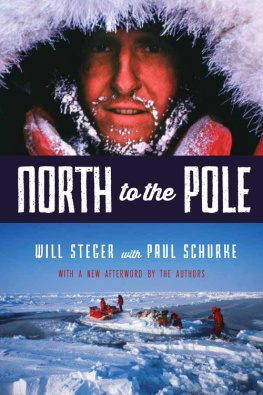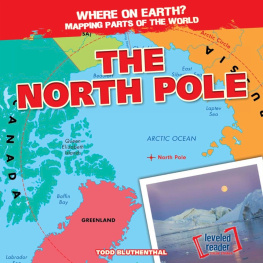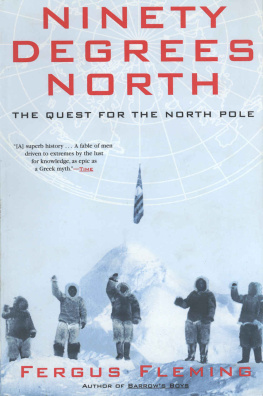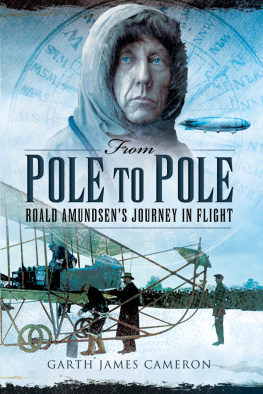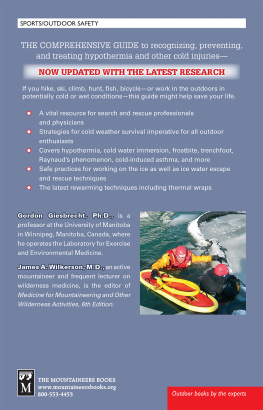Lewis Pugh - Achieving the Impossible
Here you can read online Lewis Pugh - Achieving the Impossible full text of the book (entire story) in english for free. Download pdf and epub, get meaning, cover and reviews about this ebook. year: 2013, publisher: Our Blue Future, genre: Non-fiction. Description of the work, (preface) as well as reviews are available. Best literature library LitArk.com created for fans of good reading and offers a wide selection of genres:
Romance novel
Science fiction
Adventure
Detective
Science
History
Home and family
Prose
Art
Politics
Computer
Non-fiction
Religion
Business
Children
Humor
Choose a favorite category and find really read worthwhile books. Enjoy immersion in the world of imagination, feel the emotions of the characters or learn something new for yourself, make an fascinating discovery.
- Book:Achieving the Impossible
- Author:
- Publisher:Our Blue Future
- Genre:
- Year:2013
- Rating:5 / 5
- Favourites:Add to favourites
- Your mark:
Achieving the Impossible: summary, description and annotation
We offer to read an annotation, description, summary or preface (depends on what the author of the book "Achieving the Impossible" wrote himself). If you haven't found the necessary information about the book — write in the comments, we will try to find it.
Have you ever taken a cold shower, a really cold shower, on a very cold day? Did you first put your arms under the spray of water, followed by your legs before easing your torso into the pain and then, finally, with what seemed like the hardest thing youd ever done, move your head into the line of freezing-cold fire? The temperature of that water was probably between ten or eleven degrees.
At a little after midnight on July 15, 2007, Lewis Gordon Pugh stood on the edge of the sea ice at the North Pole. It was the fifteenth anniversary of his fathers death and he was wearing just a Speedo swimsuit, the old-fashioned one that barely covers all that needs to be covered. Air temperature at the North Pole that night was below zero, the water into which he was about to plunge was minus 1.7C (29F) although this was no in-and-out dip into the worlds coldest water. Pugh was about to swim one kilometre across the North Pole and the thought did cross his mind that he might die.
If you had been alongside Professor Tim Noakes who stood in a small Zodiac boat supervising Pughs swim, you would have seen something truly startling. One of the worlds most eminent exercise physiologists, Noakes was looking at a computer screen hooked up to a thermometer on the swimmers body. What the screen told the scientist was in the minutes before the swim was to commence, Pughs core body temperature was rising significantly.
More or less naked, standing on ice in freezing temperatures at the North Pole and yet his body was heating up. Is it any wonder they called him The Human Polar Bear? Noakes, who had never encountered this phenomenon before working with Pugh, came up with a scientific term for it, anticipatory thermogenesis. Without it, Pugh wouldnt have stood a chance of swimming a kilometre in those Arctic waters. With it, he was still dicing with death.
What scared him was the depth of the water, he would sink over four kilometres before reaching the bottom. Drowning was a possibility because hypothermia creeps up on the cold-water swimmer, pressing on his respiratory channels, denying muscles oxygen, until there is no power to fight, limbs go limp, swimmer disappears. Pugh would do the swim without harness or rope and if it went wrong, his body would not be recovered.
Why was he prepared to do it?
That is a remarkable story and, ironically, extraordinary testimony to one mans belief in life. Yes Lewis Pugh wants to help protect the most wonderful places on the planet, yes he wants us to reverse the damage we have done to our environment and yes he has given up everything to dedicate his life to this purpose. And it is not like he feels he is wasting his time.
The challenges are enormous, tough laws will have to be passed, but when you have read Lewis Pughs remarkable story, you will understand that now, more than ever, is the time for us to realise that it is possible to acheive the impossible.
Lewis Pugh: author's other books
Who wrote Achieving the Impossible? Find out the surname, the name of the author of the book and a list of all author's works by series.



